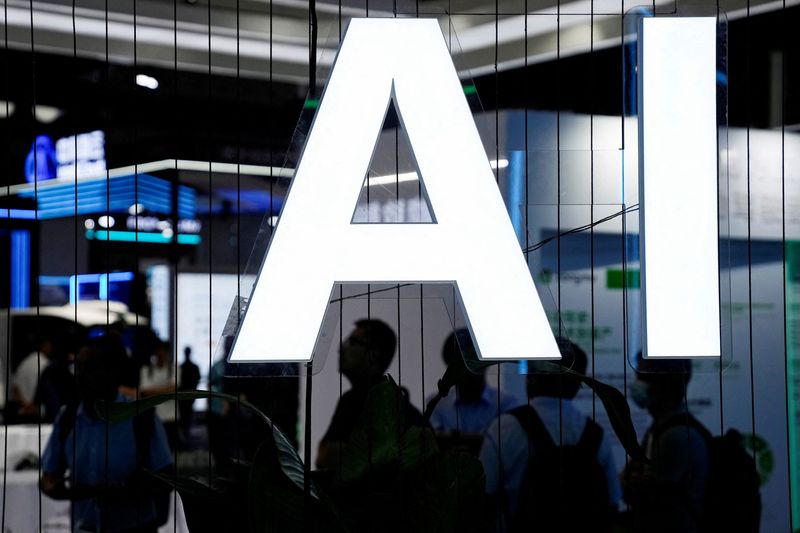Investing.com -- Donald Trump’s anticipated second term could redefine the trajectory of AI space in the United States.
While there was a strong continuity between Trump’s AI policies in his first term and Joe Biden’s term, the former president’s rapport with tech executives, criticism of regulation, and a tougher stance against China “suggest a change in approach is imminent,” according to Deutsche Bank (ETR:DBKGn) analysts.
With rapid developments in generative AI over the past two years, Deutsche Bank highlights five key shifts expected under Trump’s leadership.
1) ‘Tech leaders are in the room where it happens:’ Trump’s close ties with Silicon Valley giants like Elon Musk and venture capital leaders signal a new openness to industry perspectives.
Musk, a major Trump campaign donor, is now set to lead a government department focused on efficiency, giving him a significant role in shaping tech policy.
The president’s vice-presidential pick, JD (NASDAQ:JD) Vance, also shares strong connections to tech, co-founding Narya Capital with prominent tech backers.
During his appearance on the ‘All-In’ podcast hosted by venture capitalists David Sacks and Chamath Palihapitiya, Trump said his policies “would boost Silicon Valley by deregulating cryptocurrency, increasing access to visas for highly skilled workers and pushing for energy independence to stay competitive in AI,” Deutsche analysts note.
2) ‘Safety moves down the agenda:’ Trump’s approach signals a pivot from Biden’s AI safety initiatives, with a promise to repeal Biden’s Executive Order on AI, which enforces stricter safety measures on developers.
Trump’s AI policy is likely to favor “little tech” startups, aiming to reduce regulatory burdens. According to Deutsche Bank, this could cement the US as the primary destination for tech companies, contrasting with the European Union’s comprehensive AI regulations.
3) ‘Regulators become more AI tech-friendly:’ According to Deutsche Bank analysts, Trump’s administration is expected to take a more hands-off approach to antitrust enforcement, particularly with tech giants.
The former president has previously expressed reluctance to break up major companies, like Alphabet’s (NASDAQ:GOOGL) Google, opting instead to “make sure it's more fair” rather than dismantle it.
With Republican control in Congress, his administration may appoint officials to the Federal Trade Commission (FTC) and Department of Justice (DoJ) who lean pro-business, possibly relaxing scrutiny on tech mergers and easing regulatory pressures on the industry.
Still, both regulators “have a busy docket of tech-related lawsuits that they are unlikely to abandon,” analysts caution.
“For example, the DoJ said last month it is considering a possible breakup of Alphabet’s Google to end its search monopoly, and the FTC is suing Meta (NASDAQ META) and Amazon (NASDAQ:AMZN) for alleged monopolistic conduct,” they pointed out.
4) ‘Domestic chipmakers get preference:’ Trump’s view on chip production prioritizes domestic manufacturing, particularly as a counter to Taiwan’s dominance in advanced AI chipmaking.
He has criticized Taiwan’s heavy involvement, which he perceives as a security risk. Trump’s stance suggests that US-based firms like Intel (NASDAQ:INTC) could see more government support, with potential tariffs and trade restrictions on Chinese imports.
Tariffs on goods from China could reach as high as 60%, affecting vital tech components like gallium and germanium, minerals critical to chip production, which China largely controls.
5) ‘Security moves up the agenda:’ National security remains a central pillar of Trump’s AI strategy, particularly regarding relations with China.
His administration is likely to extend and intensify Biden’s export controls, preventing Chinese access to advanced AI technologies and semiconductors. Trump’s prior measures, like placing Huawei on the US Entity List, underline his stance on limiting China’s influence in sensitive tech areas.
“Continued American leadership in AI is of paramount importance to maintaining the economic and national security of the United States,” Trump stated in his initial executive order.
